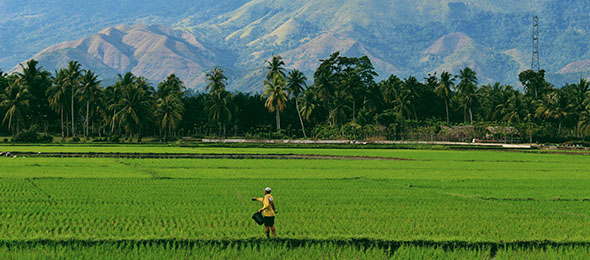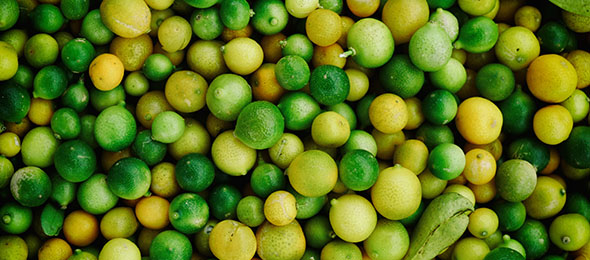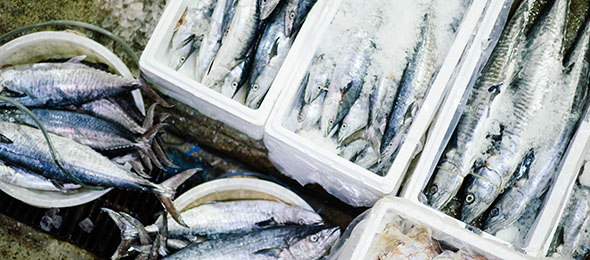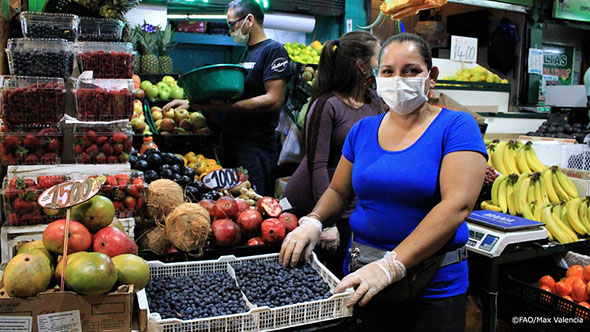|
2021 World Food Day Lecture by Donata Rugarabamu, Legal Counsel, FAO
The transformation to more efficient, inclusive, resilient and sustainable agri-food systems for better production, better nutrition, a better environment, and a better life, leaving no one behind, is at the heart of FAO’s agenda. The Lecture will discuss the role that policy, institutional and regulatory frameworks can play in achieving the objectives established by FAO Members in support of the 2030 Agenda. The Lecture will also seek to illustrate how properly designed laws can serve as drivers or accelerators for sustainable agri-food systems.

Friday, October 15, 2021 | 15:30 - 17:00 CEST | 09:30 - 11:00 EDT
REGISTER HERE
*This invitation can be widely distributed to interested parties
PRESENTATION IN ENGLISH, INTERPRETATION AVAILABLE IN FRENCH & SPANISH
AGENDA
Welcoming remarks
Marsha Echols, Founding Executive Director, World Food Law Institute
Video Message
Dr. QU Dongyu, Director-General, FAO
Introductory remarks
H. E. Hans Hoogeveen, Independent Chairperson of the Council, FAO
Lecture
Donata Rugarabamu, Legal Counsel, FAO
Questions and Answers moderated by
Marsha Echols, Founding Executive Director, World Food Law Institute
Closing and informal dialogue
Marsha Echols, Founding Executive Director, World Food Law Institute
Transforming agri-food systems.
By Margret Vidar

This year saw the adoption by the Committee on World Food Security of new Voluntary Guidelines on Food Systems and Nutrition. There is an increased interest in systems thinking and a recognition that our current food systems are not only failing to ensure everyone’s freedom from hunger, but are also contributing to ill-health of consumers and workers in the agri-food systems, while also contributing to climate change, biodiversity loss and pollution. These, in turn, may lead to increased food insecurity in the future.
Transforming food systems so that they become more socially, economically and environmentally sustainable while ensuring the right to adequate healthy diets for everyone is a challenge that every country must face. FAO is addressing the issue from multiple perspectives. The Development Law Service embarked on a research project with Laval University in Montreal, Canada in search of legislative entry points to affect such change. The first results of this research were recently published as an FAO Legal Paper entitled ‘Transforming agri-food systems - Legislative interventions for improved nutrition and sustainability: Preliminary version for public consultation’.
The publication reviews constitutional issues and recommends using framework law as a tool to help maintain consultations, monitoring and progress at the national level, before exploring various sectoral entry points to operationalize agri-food system transformation. This analysis has highlighted the importance of human rights to any transformative processes.
As systems thinking in law, spanning the entire food system from production to food environments to consumption is relatively new, the paper was published as a preliminary version for public consultations. The Development Law Service is inviting anyone interested to submit comments and suggestions and in particular good examples of transformative legislation and experiences. Comments can be sent to [email protected].
Enhancing the impact and accessibility of legal knowledge
By Margret Vidar
Aiming to provide focused and targeted legal information to various stakeholders, the Development Law Service has launched a new series of Legal Briefs, aimed at lawyers, policy makers and other stakeholders. Securing rights of access to land and water, fisheries and forests is an issue which is at the forefront in the complex matrix of elements required for the development of stable and long-term food security for rural communities and other vulnerable or marginalized groups. Drawing upon the fundamental tenets contained in the VGGT, the first seven in the new series explore how such principles can be operationalized in practice through appropriate legal and institutional processes that are based on participation and empowerment, while the 8th discusses how legislative measures can support women’s empowerment.

Building upon a long-term partnership and collaboration between FAO and the International Institute for Environment and Development (IIED), a number of briefs were prepared by the latter for FAO.
The first 7 briefs are the following:
-
Veršinskas, T., Vidar, M., Hartvigsen, M., Mitic Arsova, K., van Holst, F., Gorgan, M. 2021. Land consolidation. Legal Brief 1. Rome, FAO.
-
Cotula, L. and Knight, R. 2021. Protecting legitimate tenure rights: From concepts to practice. Legal Brief 2. Rome, FAO
-
Knight, R. & Berger, T. 2021. Promoting participatory law-making for recognition of legitimate tenure rights. Legal Brief 3. Rome, FAO.
-
Knight, R. 2021. Legal empowerment to promote legitimate tenure rights. Legal Brief 4. Rome, FAO.
-
Buxton, A., Schwartz, B. and Cotula, L. 2021. Tenure rights in large-scale and artisanal mining: Implications of the Tenure Guidelines. Legal Brief 5. Rome, FAO.
-
Jacobs, N. and Cotula, L. 2021. Land and labour: Agricultural workers’ tenure rights. Legal Brief 6. Rome, FAO.
-
Rubin, D. and Sutz, P. 2021. Supporting an enabling legal environment for women’s empowerment in food and agriculture. Legal Brief 7. Rome, FAO.
Protecting pollinators from pesticides through law
By Carmen Bullon
Pollinators are essential to maintain biodiversity and the ecosystem in which we live. Many plants and seeds depend on pollinators to develop. This, in turn, provides food and habitat for a range of other creatures. Therefore, the conservation of pollinators is closely connected to the health of our ecosystem. Honeybees, wild bees, and other pollinators can be adversely affected by pesticides, with potentially significant economic and ecological consequences.
Without pollinators we do not have flower-based agriculture or honey, while uncontrolled pests may ruin harvests. As such, from a broader One health approach and a sustainable agri-food systems perspective, pollinators are a good example of the need to strike a balance between ensuring adequate agricultural production and with appropriate environmental protection.

The FAO-WHO International Code of Conduct on Pesticide Management – Guidelines on Pesticide Legislation (2nd Edition) provides guidance for the development of national pesticide laws. However, the protection of pollinators is not specifically discussed in these Guidelines. Nevertheless, legislation is an important tool to protect pollinators from pesticides.
Within the context of the ACP MEAs 3 (Capacity building related to Multilateral Environmental Agreements in African, Caribbean and the Pacific Countries) Programme, the Development Law Service recently contributed to a preliminary review of existing legislation to protect pollinators from pesticides. The review compiles examples of legal provisions that can be used directly or indirectly to protect pollinators from adverse effects caused by the use of pesticides. It identifies trends and good practices in selected countries. It also considers the legal areas that could influence the protection of pollinators, such as pesticides and beekeeping legislation and general environment and biodiversity legislation. The examples of legislation are drawn from 10 developing countries from three continents and four high or middle-income countries. The study was presented to those countries in a series of workshops to collect feedback.
Notwithstanding the limited number of examples, the review shows there is diversity in regulatory responses. Across the more than 100 legal instruments analyzed, it identifies approximately 17 different regulatory options that have been used by countries to protect pollinators. In the review, these regulatory options are clustered under four categories: (i) product-based measures (prohibition or restriction of certain pesticides); (ii) use-based measures (how pesticides are applied to reduce related risks); (iii) effects-related measures (how negative effects are dealt with, and which monitoring mechanisms are in place); and (iv) location-based measures (where pesticides are applied including protected areas). Interestingly, the review shows how countries with similar ecosystems have adopted different types of regulatory responses. The review also highlights potential conflicts between nature conservation, honey bee production and the use of pesticides in agriculture. This review will contribute to the discourse on Strengthening Regulations to Protect Pollinators from Pesticides at a Global Seminar to be held in February 2022.
Legal Structures of Agricultural Enterprises – preconditions for success?
By Teemu Viinikainen
 Many factors may stand between the integration of family farmers and agri-micro, small and medium-sized enterprises (MSMEs) into food value chains. One such factor that so far has received relatively little attention are the complex private law issues related to the legal structures of agricultural enterprises. Many factors may stand between the integration of family farmers and agri-micro, small and medium-sized enterprises (MSMEs) into food value chains. One such factor that so far has received relatively little attention are the complex private law issues related to the legal structures of agricultural enterprises.
Family farmers and agri-MSMEs have a major role to play in ensuring progress towards achievement of SDG 2 “Zero Hunger”. Unfortunately, when operating informally, without appropriate legal structures, family farmers and agri-MSMEs struggle to fulfil this role as they are unable to integrate themselves into value chains. They often face difficulties in accessing credit, technology, and other crucial resources. Without the protections of the formal market – an enabling legal framework providing enforceable rights and obligations – they are also more likely to fall prey to unfair commercial practices. They are likely to have few options for remedies and limited access to dispute resolution mechanisms to redress their grievances. These constrain the growth of family farmers and agri-MSMEs and may even force them to shut down their operations.
The International Institute for the Unification of Private Law (UNIDROIT), the Food and Agriculture Organization of the United Nations (FAO) and the International Fund for Agricultural Development (IFAD) are expanding their collaboration in the field of private law and agricultural development to examine these issues through a new project on the Legal Structure of Agricultural Enterprises. This project looks to provide best practice private law guidance on setting up and choosing appropriate and inclusive legal structures; whether companies, cooperatives or through joint ventures or other forms of collaborative contracting. The intention is to identify common principles and rules governing the creation, operation and dissolution of agri-enterprises, as well as offer guidance on suitable legal structures. The aim is to support transformation towards sustainable agri-food systems and the fulfilment of the SDGs by identifying tools that family farmers and agri-MSMEs could use to formalize their businesses.
The role of parliamentarians in mitigating the impact of COVID-19 on food security and nutrition
By Simon Blondeau
 As a follow-up to the first Global Parliamentary Summit against Hunger and Malnutrition, a series of virtual parliamentary dialogues were organized in 2021 to discuss challenges posed by COVID-19. The dialogues provided a forum to share some of the parliamentary responses to the pandemic and with a view to strengthening the capacity of parliamentarians to legislate on food security and nutrition in times of emergency. As a follow-up to the first Global Parliamentary Summit against Hunger and Malnutrition, a series of virtual parliamentary dialogues were organized in 2021 to discuss challenges posed by COVID-19. The dialogues provided a forum to share some of the parliamentary responses to the pandemic and with a view to strengthening the capacity of parliamentarians to legislate on food security and nutrition in times of emergency.
The pandemic has highlighted the key role of parliamentarians. It has also demonstrated the need for concrete legislative measures promoting food availability and ensuring the economic and physical access of all, especially vulnerable populations, to healthy and nutritious diets in times of pandemic. As reflected during the dialogues, there are many concrete legislative measures that, once adapted to specific contexts, can help mitigate the impact of COVID-19 on agri-food systems and the capacity of people to feed themselves and their family in dignity. These include legislating at different levels to limit disruptions to the food supply chain, whether it be by including agri-food systems dimensions when defining what is essential, adapting movement restrictions or establishing safe trade corridors.
The pandemic has also shown the importance of legislating in a coordinated manner to ensure access of vulnerable households to adequate food. This could include specific measures, for example, establishing emergency coordination mechanisms for the adoption of social protection measures, such as food vouchers or financial assistance to families whose children normally receive school meals.
In the Development Law Service’s experience, the Covid-19 pandemic has underlined that laws offer an effective and prompt way to address pressing issues throughout agri-food systems. Such legislative and regulatory interventions must, however, be informed, evidence-based and coordinated, mindful of guaranteeing a healthy diet for all, especially for vulnerable groups in society.
Legal frameworks - an indispensable driver for sustainable aquaculture development
By Minmin Lei
 Aquatic products are the third largest source of protein for human consumption and contribute significantly to food security and nutrition. In the past ten years, global aquaculture production has increased by more than 40%, becoming one of the fastest growing food production sectors. It is projected that aquaculture will further grow by 30% by 2030 if innovative technical solutions, political and private sector will, as well as investment are harnessed. Aquatic products are the third largest source of protein for human consumption and contribute significantly to food security and nutrition. In the past ten years, global aquaculture production has increased by more than 40%, becoming one of the fastest growing food production sectors. It is projected that aquaculture will further grow by 30% by 2030 if innovative technical solutions, political and private sector will, as well as investment are harnessed.
Though the aquaculture sector has witnessed rapid growth, adequate governance, in particular, legal frameworks are not always in place in many countries. According to the paper on Code of Conduct for Responsible Fisheries (CCRF) implementation (2021), prepared by FAO Committee of Fisheries (COFI), less than half of the countries responding to a FAO CCRF questionnaire have a comprehensive aquaculture legal framework. This is clearly not conducive to sustainable aquaculture development or attracting investment to the sector.
Unlike the management of capture fisheries, which is largely undertaken in accordance with the requirements of a fisheries-specific law, the legal frameworks for aquaculture are invariably complex. Typically, while some aspects of aquaculture are addressed in legislation that has aquaculture as its specific or primary focus, such as a chapter in a fisheries law or a stand-alone aquaculture law, many other aspects of aquaculture are subject to other sectoral legislation which regulate a wide range of issues relevant to the aquaculture sector. Consequently, legal frameworks for aquaculture include, in addition to aquaculture-specific legislation or a specific aquaculture chapter in fisheries legislation, legislation regulating matters such as land and water tenure, spatial planning, environment, veterinary, drugs, biosecurity, animal and plant health and production, food safety and quality and biosafety.
Streamlined and harmonized legal frameworks for aquaculture brings legislative coherence among different sector or subject legislation, addressing issues that may hinder the aquaculture sector’s growth, such as regulatory burden, the negative image and social burden of aquaculture and competition with other sectors over land and water. Such frameworks regulate the whole value chain of aquaculture, from production, processing, transportation, to distribution. Legislative coherence creates an enabling environment for sustainable aquaculture development in terms of its economic, social and environmental dimensions.
In the above context, the Development Law Service developed a legal diagnostic tool called the Aquaculture Legal Assessment and Revision Tool (ALART). The tool is in the form of a questionnaire which enables a systematic assessment of a country’s existing legal framework for aquaculture development. It is accompanied by a study entitled ‘Legal frameworks for sustainable aquaculture’, which describes international hard and soft law normative frameworks for aquaculture, considers the typical evolution of national aquaculture legislation within national legal frameworks for aquaculture and also examines the key elements of legal frameworks for sustainable aquaculture. Both serve as a reference for countries seeking to revise their legal frameworks for aquaculture development.
Los derechos humanos al centro de la nueva Constitución de Chile
By Manuela Cuvi Rodriguez
 La doctora Elisa Loncon Antileo, distinguida por la Revista Time como una de las 100 personas más influyentes de 2021, es la académica mapuche que preside la Convención Constitucional de Chile. La Convención, que tiene el encargo de redactar una nueva Constitución que reemplace la que rige -con modificaciones- desde la dictadura, y está integrada por 155 personas elegidas popularmente, es paritaria y cuenta con representantes de los pueblos indígenas. La doctora Elisa Loncon Antileo, distinguida por la Revista Time como una de las 100 personas más influyentes de 2021, es la académica mapuche que preside la Convención Constitucional de Chile. La Convención, que tiene el encargo de redactar una nueva Constitución que reemplace la que rige -con modificaciones- desde la dictadura, y está integrada por 155 personas elegidas popularmente, es paritaria y cuenta con representantes de los pueblos indígenas.
De acuerdo a las reglas que habilitaron este proceso “el texto de Nueva Constitución que se someta a plebiscito deberá respetar el carácter de República del Estado de Chile, su régimen democrático, las sentencias judiciales firmes y ejecutoriadas y los tratados internacionales ratificados por Chile y que se encuentren vigentes” (Ley 21.200 de 24 de diciembre de 2019, art. 135, énfasis añadido).
En efecto, la nueva Constitución no es una hoja en blanco cuando de derechos fundamentales se trata. Desde la adopción de la Declaración Universal de los Derechos Humanos en 1948 y los subsecuentes pactos internacionales de derechos humanos sobre derechos civiles, políticos, económicos, sociales y culturales, así como los tratados regionales adoptados en el marco del Sistema Interamericano de Derechos Humanos, y otros tratados como el Convenio 169 de la OIT, más de 75 años de historia acompañan este proceso.
Por eso, el sistema de las Naciones Unidas en Chile se ha puesto a disposición de la Convención Constitucional para brindarle apoyo en el desarrollo de su significativa tarea (acuerdo de 23 de agosto de 2021 ).
Entre otras acciones, la Oficina del Alto Comisionado para los Derechos Humanos para América del Sur ha elaborado una serie de documentos técnicos que invitan a poner los derechos humanos al centro de la nueva Constitución . La FAO en Chile, por su parte, ha puesto a disposición un Repositorio sobre el Derecho a la Alimentación donde destaca una Nota de Orientación Jurídica sobre el Reconocimiento Constitucional del Derecho a la Alimentación Adecuada en Chile1.
Cabe señalar que el derecho a la alimentación adecuada está reconocido en el Pacto Internacional de Derechos Económicos, Sociales y Culturales, del cual Chile es Parte. Por ello, la FAO ha recomendado que sea incluido de manera explícita en la nueva Constitución, como ya lo han hecho 30 países del mundo, 15 de la región de América Latina y el Caribe.
En Chile la inseguridad alimentaria grave y moderada es de un 11,5%, pero la desigualdad existente implica que el quintil de menos ingresos presenta un 20,4% de inseguridad alimentaria, mientras que el quintil de mayores ingresos un 3,4%2 . Al mismo tiempo, 7 de cada 10 personas mayores de 15 años y 6 de cada 10 niñas y niños de quinto básico en Chile experimentan obesidad o sobrepeso. Además, la inseguridad alimentaria y la obesidad afectan más a los hogares con jefatura femenina, y a las mujeres en general, evidenciando una importante brecha de género.
Esto tiene un impacto en la situación sanitaria general, ya que en Chile hasta un 80% de las muertes se deben a enfermedades crónicas no transmisibles asociadas a la alimentación. Además, se estima que en 30 años, la expectativa de vida disminuirá 3,5 años como consecuencia de este tipo de enfermedades. En cuanto a los efectos económicos, el país gasta hasta un 9% de su presupuesto sanitario en el tratamiento de enfermedades asociadas a la alimentación. El costo alcanza hasta un 1% del PIB y podría llegar, en 30 años, incluso a un 4%3 . Por ello, llevar a la práctica el derecho a la alimentación es necesario no sólo para asegurar un nivel de vida adecuado de los habitantes de Chile, sino que es además económicamente racional: al reducir la malnutrición se promueve el crecimiento económico, pues las personas que tienen seguridad alimentaria son más productivas, se enferman con menos frecuencia y tienden a invertir más en el futuro.
El reconocimiento constitucional del derecho a la alimentación adecuada debe traducirse en acciones concretas para construir sistemas agroalimentarios sostenibles, inclusivos y resilientes, que promuevan dietas y hábitos saludables, potencien la agricultura familiar y el desarrollo rural sostenible, y hagan frente a los desafíos del cambio climático.
Chile tiene una valiosa oportunidad para construir un nuevo pacto social donde la vida digna, la alimentación adecuada, saludable y nutritiva, el agua, la tierra, los recursos naturales y, en definitiva, todos los derechos humanos, ocupen un lugar central y estén al alcance de todas las personas, sin dejar a nadie atrás.
1. FAO, 2021, Nota de Orientación Jurídica El Reconocimiento Constitucional del Derecho a la Alimentación en Chile, Santiago, Chile (disponible en: http://www.fao.org/3/cb4614es/cb4614es.pdf).
2. Op. Cit. Nota 1.
3. Ibidem
|

